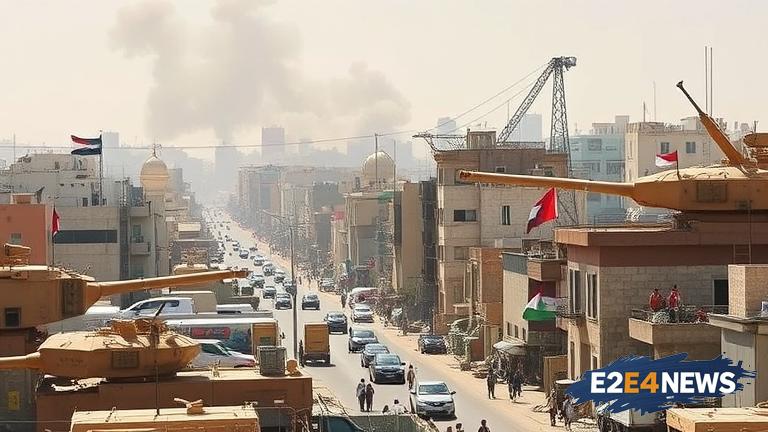The Israeli military has launched a significant offensive in Gaza City, with reports of airstrikes and ground troops being deployed in the area. The move has sparked widespread concern and condemnation from the international community, with many fearing a wider conflict in the region. The offensive comes amid escalating tensions between Israel and Palestine, with the two sides having been locked in a decades-long conflict over issues such as territory, borders, and the right of return for Palestinian refugees. The Israeli government, led by Prime Minister Benjamin Netanyahu, has stated that the offensive is aimed at targeting militant groups in the Gaza Strip, including Hamas and Islamic Jihad. However, Palestinian officials have accused Israel of using disproportionate force and of targeting civilian areas, including homes, schools, and hospitals. The Gaza Strip has been under an Israeli blockade since 2007, which has led to widespread poverty, unemployment, and a humanitarian crisis. The Palestinian people have been commemorating the Nakba, or ‘catastrophe’ in Arabic, which marks the displacement of hundreds of thousands of Palestinians from their homes during the creation of the state of Israel in 1948. The Nakba is seen as a national tragedy by the Palestinian people, and is commemorated annually on May 15th. The Israeli offensive has sparked widespread protests and demonstrations across the region, with many calling for an end to the violence and a return to peace negotiations. The international community has also been critical of the Israeli actions, with many countries calling for restraint and a return to diplomacy. The United States, a key ally of Israel, has stated that it supports Israel’s right to self-defense, but has also called for calm and restraint. The European Union has also condemned the violence, and has called for a return to peace negotiations. The conflict in Gaza has also had a significant impact on the humanitarian situation, with many civilians caught in the crossfire. The United Nations has warned of a humanitarian crisis in the Gaza Strip, with many people in need of food, shelter, and medical care. The Israeli military has stated that it is taking steps to minimize civilian casualties, but many have questioned the effectiveness of these measures. The conflict has also had a significant impact on the regional politics, with many countries in the Middle East calling for an end to the violence. The Arab League has condemned the Israeli actions, and has called for a return to peace negotiations. The conflict has also sparked a wider debate about the Israeli-Palestinian conflict, with many calling for a return to negotiations and a two-state solution. Despite the challenges, many remain hopeful that a peaceful resolution can be found, and that the two sides can find a way to live in peace and security. The international community will be watching the situation closely, and will be calling for calm and restraint in the coming days. The conflict in Gaza is a complex and deeply entrenched issue, with many different factors at play. However, one thing is clear: the situation is dire, and something needs to be done to bring about a peaceful resolution. The world will be watching as the situation unfolds, and will be calling for an end to the violence and a return to peace negotiations.



